 If you have a large waist circumference, you are more likely to have low blood levels of vitamin D, according to a study that was presented at the annual meeting of the European Society of Endocrinology (ESE) in Barcelona in 2018. The researchers therefore suggest that overweight individuals with a large waist circumference have their vitamin D levels measured, as this may help prevent many of the health problems that are linked to low vitamin D levels, including such things as an increased risk of infections, cardiovascular disease, osteoporosis, winter depression, blood sugar irregularities, diabetes, autoimmune diseases, and cancer.
If you have a large waist circumference, you are more likely to have low blood levels of vitamin D, according to a study that was presented at the annual meeting of the European Society of Endocrinology (ESE) in Barcelona in 2018. The researchers therefore suggest that overweight individuals with a large waist circumference have their vitamin D levels measured, as this may help prevent many of the health problems that are linked to low vitamin D levels, including such things as an increased risk of infections, cardiovascular disease, osteoporosis, winter depression, blood sugar irregularities, diabetes, autoimmune diseases, and cancer.
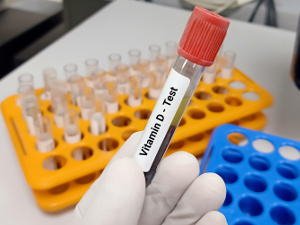 Blood levels of vitamin D serve as an early indicator of future health problems such as cardiovascular disease, osteoporosis, and cancer, according to a review article that was presented recently to the European Society of Endocrinology. Lack of vitamin D is rather common and a threat to public health, which is why the scientists suggest measuring levels of total vitamin D and free vitamin D in the blood. By optimizing levels of the nutrient in the blood it is possible to prevent a host of different lifestyle diseases as well as early death. It is not enough just to take any random vitamin D supplement. It must contain the right dose and have good absorption in order to be able to optimize vitamin D levels in the blood.
Blood levels of vitamin D serve as an early indicator of future health problems such as cardiovascular disease, osteoporosis, and cancer, according to a review article that was presented recently to the European Society of Endocrinology. Lack of vitamin D is rather common and a threat to public health, which is why the scientists suggest measuring levels of total vitamin D and free vitamin D in the blood. By optimizing levels of the nutrient in the blood it is possible to prevent a host of different lifestyle diseases as well as early death. It is not enough just to take any random vitamin D supplement. It must contain the right dose and have good absorption in order to be able to optimize vitamin D levels in the blood.
 According to a new study, hormone-disrupting substances like bisphenol-A and phthalates can lower levels of vitamin D in the bloodstream. During the winter period, it is a problem to get enough vitamin D to begin with, as the sun sits low in the sky and we only get a limited amount of the nutrient from our diet. The combination of too little vitamin D and hormone-disrupting substances is rather unfortunate because lack of vitamin D increases the risk of infections, winter depression, diabetes, cardiovascular diseases, osteoporosis, and cancer.
According to a new study, hormone-disrupting substances like bisphenol-A and phthalates can lower levels of vitamin D in the bloodstream. During the winter period, it is a problem to get enough vitamin D to begin with, as the sun sits low in the sky and we only get a limited amount of the nutrient from our diet. The combination of too little vitamin D and hormone-disrupting substances is rather unfortunate because lack of vitamin D increases the risk of infections, winter depression, diabetes, cardiovascular diseases, osteoporosis, and cancer.
 Children and youngsters who are exposed to lots of sunlight and have plenty of vitamin D in their blood are much less likely to develop sclerosis later in life, according to a new study. In fact, there is a reason why sclerosis is more prevalent at northern latitudes. During the winter, the sun sits too low in the sky for us humans to be able to synthesize vitamin D in the skin. However, one must also realize that the intensified use of sunscreen can block the skin’s production of vitamin D. It is therefore essential to get plenty of vitamin D from sun exposure or to take a vitamin D supplement, as this may help prevent diseases such as sclerosis that take years to develop.
Children and youngsters who are exposed to lots of sunlight and have plenty of vitamin D in their blood are much less likely to develop sclerosis later in life, according to a new study. In fact, there is a reason why sclerosis is more prevalent at northern latitudes. During the winter, the sun sits too low in the sky for us humans to be able to synthesize vitamin D in the skin. However, one must also realize that the intensified use of sunscreen can block the skin’s production of vitamin D. It is therefore essential to get plenty of vitamin D from sun exposure or to take a vitamin D supplement, as this may help prevent diseases such as sclerosis that take years to develop.
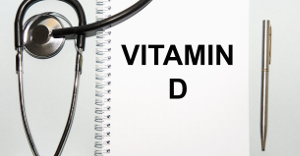 Vitamin Dis important for a swift and effective immune response. Once COVID-19 infections become complicated and life-threatening, it is not the virus that is the threat but the fact that the immune defense reacts too slowly and then causes hyperinflammation that damages healthy tissues in the respiratory system and circulatory system.
Vitamin Dis important for a swift and effective immune response. Once COVID-19 infections become complicated and life-threatening, it is not the virus that is the threat but the fact that the immune defense reacts too slowly and then causes hyperinflammation that damages healthy tissues in the respiratory system and circulatory system.
French scientists have made a meta-analysis where they looked at the relation between vitamin D levels in the elderly and COVID-19. Their review revealed that lack of vitamin D increases the infection risk and makes it more likely that the infections become complicated and life-threatening. Vitamin D deficiency is common among older people and for that reason, the researchers recommend vitamin D supplements as an inexpensive strategy for prevention and as a supplementary source of treatment.
- that increases your risk of different diseases and premature death
 Approximately one billion people worldwide lack vitamin D because they get too little sunlight, they overuse suncream, or they have chronic diseases that prevent proper utilization of the nutrient. This was shown in a new study that is published in The Journal of the American Osteopathic Association. During the summer period, health authorities and organizations issue warnings against the sun and recommend the use of suncream. These campaigns, however, should ideally be accompanied by recommendations on how to get enough vitamin D from other sources. Otherwise, the campaigns may do more harm than good, as all cells in the body need this essential nutrient, and the sun is the single best vitamin D source.
Approximately one billion people worldwide lack vitamin D because they get too little sunlight, they overuse suncream, or they have chronic diseases that prevent proper utilization of the nutrient. This was shown in a new study that is published in The Journal of the American Osteopathic Association. During the summer period, health authorities and organizations issue warnings against the sun and recommend the use of suncream. These campaigns, however, should ideally be accompanied by recommendations on how to get enough vitamin D from other sources. Otherwise, the campaigns may do more harm than good, as all cells in the body need this essential nutrient, and the sun is the single best vitamin D source.
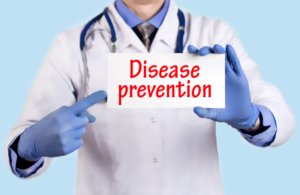 Scientists have discussed for quite some time to what extent vitamin D or omega-3 fatty acids from fish oil are able to lower the risk of a heart attack, stroke, and cancer. Although quite a lot of studies have been conducted in this area, there still is no large-scale clinical population study that includes different races. However, an American study has shown that fish oil supplements lower your risk of a heart attack, and large quantities of vitamin D have a long-term preventative effect on different cancer forms. The effect of these two different supplements is also affected by a person’s race.
Scientists have discussed for quite some time to what extent vitamin D or omega-3 fatty acids from fish oil are able to lower the risk of a heart attack, stroke, and cancer. Although quite a lot of studies have been conducted in this area, there still is no large-scale clinical population study that includes different races. However, an American study has shown that fish oil supplements lower your risk of a heart attack, and large quantities of vitamin D have a long-term preventative effect on different cancer forms. The effect of these two different supplements is also affected by a person’s race.
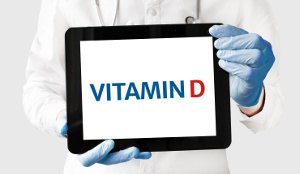 It is both healthy and life-extending to get plenty of summer sun, which is our main source of vitamin D. Just make sure not to get a sunburn. According to a large population study from University of South Australia, too little vitamin D in the blood is linked to early death, especially because of an increased risk of cardiovascular disease, cancer, and respiratory diseases. This is very relevant because, apart from the lack of sunshine during winter, things like sun awareness campaigns, indoor living, being overweight, and having dark skin can contribute to the widespread lack of vitamin D. The official recommendations for vitamin D intake are also comparatively conservative. Therefore, people should strive to optimize their levels of the nutrient, as vitamin D is involved in regulating countless gene activities and other functions in the body.
It is both healthy and life-extending to get plenty of summer sun, which is our main source of vitamin D. Just make sure not to get a sunburn. According to a large population study from University of South Australia, too little vitamin D in the blood is linked to early death, especially because of an increased risk of cardiovascular disease, cancer, and respiratory diseases. This is very relevant because, apart from the lack of sunshine during winter, things like sun awareness campaigns, indoor living, being overweight, and having dark skin can contribute to the widespread lack of vitamin D. The official recommendations for vitamin D intake are also comparatively conservative. Therefore, people should strive to optimize their levels of the nutrient, as vitamin D is involved in regulating countless gene activities and other functions in the body.
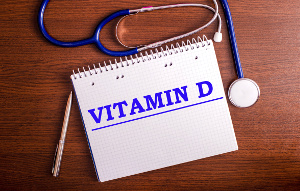 Vitamin D plays an overlooked role in the immune defense. Being deficient of the nutrient increases your risk of bacterial pneumonia by up to 60 percent, according to a large Danish study of 116,000 participants that was carried out by scientists from Herlev Hospital, Gentofte Hospital, and the University of Copenhagen.
Vitamin D plays an overlooked role in the immune defense. Being deficient of the nutrient increases your risk of bacterial pneumonia by up to 60 percent, according to a large Danish study of 116,000 participants that was carried out by scientists from Herlev Hospital, Gentofte Hospital, and the University of Copenhagen.
Because many older people, cancer patients, and other chronically ill individuals are at increased risk of respiratory infections and because bacterial pneumonia can be potentially lethal, the scientists see a huge potential in using vitamin D supplements to prevent the disease.
- and worsens the odds for women who have the disease
 Decades of research show that there is a link between lack of vitamin D and an increased risk of breast cancer. Vitamin D deficiencies are especially common at the northern latitudes because the sun sits too low in the sky for humans to be able to synthesize the vitamin during the winter. However, even in the southern hemisphere, many women have too little vitamin D because of spending too much time indoors, using too much suncream, or veiling themselves. Vitamin D has many anti-cancer properties, and postmenopausal women with too little vitamin D in their blood, who are diagnosed with breast cancer, have worse odds, according to a study of Brazilian women. In other words, it is not enough to treat breast cancer with surgery, chemotherapy, and radiation. You also need to optimize your blood levels of vitamin D and other nutrients, which the body needs in order to function optimally.
Decades of research show that there is a link between lack of vitamin D and an increased risk of breast cancer. Vitamin D deficiencies are especially common at the northern latitudes because the sun sits too low in the sky for humans to be able to synthesize the vitamin during the winter. However, even in the southern hemisphere, many women have too little vitamin D because of spending too much time indoors, using too much suncream, or veiling themselves. Vitamin D has many anti-cancer properties, and postmenopausal women with too little vitamin D in their blood, who are diagnosed with breast cancer, have worse odds, according to a study of Brazilian women. In other words, it is not enough to treat breast cancer with surgery, chemotherapy, and radiation. You also need to optimize your blood levels of vitamin D and other nutrients, which the body needs in order to function optimally.
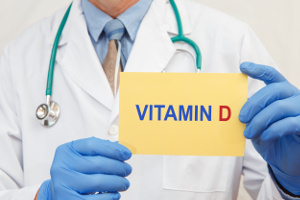 A large Israeli population study of over 4.6 million people shows that lack of sunshine and vitamin D increases the risk of COVID-19 infections and new infection waves in the winter period. The study shows why seniors, those with chronic disease, overweight individuals, and certain ethnic groups such as orthodox male Jews and female Muslims are more vulnerable. The scientists recommend vitamin D supplementation throughout the winter period or even all year round for those who do not get enough sun exposure during the summer. You can also read about why face masks block the body’s vitamin D synthesis, why COVID-19 originates from bats, and other mysteries related to the spread of the infection.
A large Israeli population study of over 4.6 million people shows that lack of sunshine and vitamin D increases the risk of COVID-19 infections and new infection waves in the winter period. The study shows why seniors, those with chronic disease, overweight individuals, and certain ethnic groups such as orthodox male Jews and female Muslims are more vulnerable. The scientists recommend vitamin D supplementation throughout the winter period or even all year round for those who do not get enough sun exposure during the summer. You can also read about why face masks block the body’s vitamin D synthesis, why COVID-19 originates from bats, and other mysteries related to the spread of the infection.
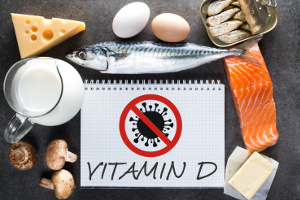 Vitamin D is vital for a well-functioning immune defense, yet a stunning 80 percent of patients hospitalized with COVID-19 lack the nutrient, according to a study published in The Journal of Clinical Endocrinology & Metabolism. Earlier research has shown that having too little vitamin D in your system increases the risk of life-threatening complications. It is also a well-known fact that vitamin D deficiency is a problem that is more widespread during the winter period, especially among exposed groups like seniors, nursing home residents, chronically ill, and dark-skinned people.
Vitamin D is vital for a well-functioning immune defense, yet a stunning 80 percent of patients hospitalized with COVID-19 lack the nutrient, according to a study published in The Journal of Clinical Endocrinology & Metabolism. Earlier research has shown that having too little vitamin D in your system increases the risk of life-threatening complications. It is also a well-known fact that vitamin D deficiency is a problem that is more widespread during the winter period, especially among exposed groups like seniors, nursing home residents, chronically ill, and dark-skinned people.
- but specific nutrients protect you
 People, who eat nutrient-depleted diets, have an increased risk of contracting cancer, according to a French study that is published in PLoS Medicine. The scientists therefore recommend labeling food to help consumers make healthier choices. In the Nordic countries, we already have the “Keyhole label” on certain healthy food items, but even if you follow the official dietary guidelines, it may be difficult to get enough vitamin D and selenium, both of which are nutrients with several anti-cancer mechanisms.
People, who eat nutrient-depleted diets, have an increased risk of contracting cancer, according to a French study that is published in PLoS Medicine. The scientists therefore recommend labeling food to help consumers make healthier choices. In the Nordic countries, we already have the “Keyhole label” on certain healthy food items, but even if you follow the official dietary guidelines, it may be difficult to get enough vitamin D and selenium, both of which are nutrients with several anti-cancer mechanisms.
 One in nine Danish women gets breast cancer, and the situation is not improving, on the contrary. One of the reasons why breast cancer is so widespread is that so many women lack vitamin D, and it looks as if the official recommendations for this nutrient are too low. A new American study has shown that those with higher amounts of vitamin D in the blood have a lower risk of the dreaded disease. The question is how much vitamin D do we need for optimal disease prevention, and what role does the nutrient play for those who have already been diagnosed with breast cancer?
One in nine Danish women gets breast cancer, and the situation is not improving, on the contrary. One of the reasons why breast cancer is so widespread is that so many women lack vitamin D, and it looks as if the official recommendations for this nutrient are too low. A new American study has shown that those with higher amounts of vitamin D in the blood have a lower risk of the dreaded disease. The question is how much vitamin D do we need for optimal disease prevention, and what role does the nutrient play for those who have already been diagnosed with breast cancer?
 An only six-month-old baby died of heart failure and the following complications. The tragedy was a result of severe vitamin D deficiency, which, according to researchers at the University of Birmingham, could have been avoided with better control. They now demand that the health authorities change their policy regarding vitamin D supplements, so that they take into account the special needs of babies, pregnant women, dark-skinned individuals, and population groups that are more likely to be vitamin D-deficient. With this tragic death, which does not stand alone, we are only seeing the tip of the iceberg. Having too little vitamin D can also increase your risk of weak bones, infections, asthma, autism, and many other diseases.
An only six-month-old baby died of heart failure and the following complications. The tragedy was a result of severe vitamin D deficiency, which, according to researchers at the University of Birmingham, could have been avoided with better control. They now demand that the health authorities change their policy regarding vitamin D supplements, so that they take into account the special needs of babies, pregnant women, dark-skinned individuals, and population groups that are more likely to be vitamin D-deficient. With this tragic death, which does not stand alone, we are only seeing the tip of the iceberg. Having too little vitamin D can also increase your risk of weak bones, infections, asthma, autism, and many other diseases.
 A substantial number of people suffer from Hashimoto’s disease, a condition that causes hypothyroidism (slow metabolism), extreme fatigue, cold sensitivity, weight gain, and numerous other symptoms because the cells lack energy. Quite a few people suffering from this disease receive treatment, but the results are often unsatisfactory, and most people have not been given the correct diagnosis or do not receive proper help.
A substantial number of people suffer from Hashimoto’s disease, a condition that causes hypothyroidism (slow metabolism), extreme fatigue, cold sensitivity, weight gain, and numerous other symptoms because the cells lack energy. Quite a few people suffering from this disease receive treatment, but the results are often unsatisfactory, and most people have not been given the correct diagnosis or do not receive proper help.
 Sun awareness campaigns have scared people away from sun exposure because of the risk of skin cancer. Still, it is essential to get enough vitamin D from the sun during the summer period, as long as we avoid getting sunburned. Vitamin D is vital for our immune defense, mood, bone health, cancer prevention, and many other things. A Swedish study has revealed that lack of sunshine is every bit as dangerous as smoking, and according to a British study, vitamin D inhibits cellular ageing. A Danish study has even shown that lack of vitamin D increases the risk of early death. The big questions are how much vitamin D do we get from sun exposure during the summer period, when do we need to take vitamin D supplements, and why should old people, dark-skinned individuals, and certain other population groups take vitamin D all year round?
Sun awareness campaigns have scared people away from sun exposure because of the risk of skin cancer. Still, it is essential to get enough vitamin D from the sun during the summer period, as long as we avoid getting sunburned. Vitamin D is vital for our immune defense, mood, bone health, cancer prevention, and many other things. A Swedish study has revealed that lack of sunshine is every bit as dangerous as smoking, and according to a British study, vitamin D inhibits cellular ageing. A Danish study has even shown that lack of vitamin D increases the risk of early death. The big questions are how much vitamin D do we get from sun exposure during the summer period, when do we need to take vitamin D supplements, and why should old people, dark-skinned individuals, and certain other population groups take vitamin D all year round?
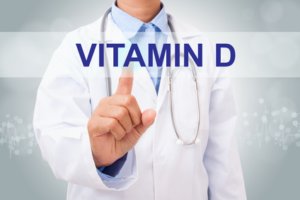 Having high blood levels of vitamin D lowers the risk of several cancer forms, according to a new study of Japanese adults. The study is the first to take a closer look at how vitamin D affects an Asian population. Over the past decades, numerous studies have pointed to vitamin D’s role in cancer prevention. Meanwhile, other studies have demonstrated that there is widespread vitamin D deficiency. There is even evidence suggesting that our need for the nutrient exceeds the official recommendations, at least if we want to protect ourselves against cancer.
Having high blood levels of vitamin D lowers the risk of several cancer forms, according to a new study of Japanese adults. The study is the first to take a closer look at how vitamin D affects an Asian population. Over the past decades, numerous studies have pointed to vitamin D’s role in cancer prevention. Meanwhile, other studies have demonstrated that there is widespread vitamin D deficiency. There is even evidence suggesting that our need for the nutrient exceeds the official recommendations, at least if we want to protect ourselves against cancer.
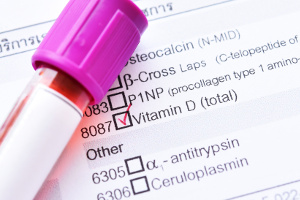 Vitamin D-deficient patients are twice as likely to sustain life-threatening complications in the wake of a COVID-19 infection, according to a study from Northwestern University in the United States, where scientists collected data from 10 different countries. It is worth making a note of the fact that vitamin D deficiencies are particularly common among older people of color, nursing home residents, overweight people, and chronically ill individuals, all of which are well-known risk groups. In the future fight against COVID-19 and other epidemics, good hygiene, hand sanitizer, isolation, and delayed vaccines are not enough. We must take the right measures to regulate our immune system with vitamin D, which can determine whether we reject the virus, contract a mild infection, or die of the subsequent, life-threatening cytokine storm and organ failure.
Vitamin D-deficient patients are twice as likely to sustain life-threatening complications in the wake of a COVID-19 infection, according to a study from Northwestern University in the United States, where scientists collected data from 10 different countries. It is worth making a note of the fact that vitamin D deficiencies are particularly common among older people of color, nursing home residents, overweight people, and chronically ill individuals, all of which are well-known risk groups. In the future fight against COVID-19 and other epidemics, good hygiene, hand sanitizer, isolation, and delayed vaccines are not enough. We must take the right measures to regulate our immune system with vitamin D, which can determine whether we reject the virus, contract a mild infection, or die of the subsequent, life-threatening cytokine storm and organ failure.
- but the official recommendations are too low
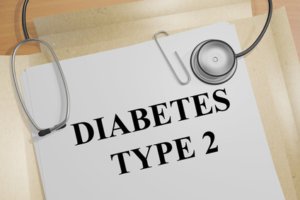 According to an American study, individuals with higher blood levels of vitamin D are far less likely to develop type 2 diabetes and metabolic syndrome, the early stage of the disease, which is characterized by insulin resistance, hypertension, and elevated cholesterol levels. Because it takes many years for type 2 diabetes to develop, it is essential to have sufficiently high vitamin D levels from the early years in life. Both the new American study and earlier research point to the fact that it is not possible to obtain high blood levels of the nutrient without getting plenty of sun during the summer period and taking a high-dosed vitamin D supplement in the winter.
According to an American study, individuals with higher blood levels of vitamin D are far less likely to develop type 2 diabetes and metabolic syndrome, the early stage of the disease, which is characterized by insulin resistance, hypertension, and elevated cholesterol levels. Because it takes many years for type 2 diabetes to develop, it is essential to have sufficiently high vitamin D levels from the early years in life. Both the new American study and earlier research point to the fact that it is not possible to obtain high blood levels of the nutrient without getting plenty of sun during the summer period and taking a high-dosed vitamin D supplement in the winter.
 Melanoma can be very dangerous if it is not treated in time, but a study from the University of Leeds in England shows that vitamin D affects melanoma cells and makes them less aggressive. According to the scientists behind the study, this revelation may lead to new therapies. It is a problem, however, that health authorities warn people against sun exposure without informing about alternative ways to optimize vitamin D levels. The sun during the summer period is our main source of vitamin D, so we just have to make sure not to get burned. At our latitudes, it is a good idea to take a vitamin D supplement during the winter period. According to other studies, the nutrient prevents cancer by way of several different mechanisms.
Melanoma can be very dangerous if it is not treated in time, but a study from the University of Leeds in England shows that vitamin D affects melanoma cells and makes them less aggressive. According to the scientists behind the study, this revelation may lead to new therapies. It is a problem, however, that health authorities warn people against sun exposure without informing about alternative ways to optimize vitamin D levels. The sun during the summer period is our main source of vitamin D, so we just have to make sure not to get burned. At our latitudes, it is a good idea to take a vitamin D supplement during the winter period. According to other studies, the nutrient prevents cancer by way of several different mechanisms.
 It is hardly a coincidence that so many of us contract virus infections in the course of the winter. It is because we lack vitamin D, which we are unable to synthesize when the sun sits too low in the sky. Danish scientists have discovered how vitamin D activates the immune system, and a comprehensive meta-analysis shows how vitamin D supplements can prevent colds, flus, and related complications.
It is hardly a coincidence that so many of us contract virus infections in the course of the winter. It is because we lack vitamin D, which we are unable to synthesize when the sun sits too low in the sky. Danish scientists have discovered how vitamin D activates the immune system, and a comprehensive meta-analysis shows how vitamin D supplements can prevent colds, flus, and related complications.
- and may save the lives of many weak and older people
 Supplementing with high doses of vitamin D may lower the rate of acute airway infections by up to 40 per cent. This simple trick may have the potential to save millions of lives, as many older people, cancer patients and others people with impaired resistance die of pneumonia.
Supplementing with high doses of vitamin D may lower the rate of acute airway infections by up to 40 per cent. This simple trick may have the potential to save millions of lives, as many older people, cancer patients and others people with impaired resistance die of pneumonia.
- and the nutrient also has anti-cancer properties
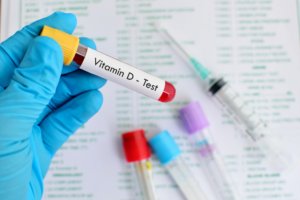 Cancer patients, who take high-dosed vitamin D supplements for at least three years may live longer, according to a study from Michigan State University, USA. It is not enough to treat cancer with surgery, chemotherapy and radiation. You also have to optimize the body’s vitamin D status. It is a problem that vitamin D deficiency is so common because it helps long-term prevention if you have adequate levels of the nutrient in your blood. The question is how much do we need, and is the sun sufficiently powerful to enable us to synthesize vitamin D in our skin during the winter period?
Cancer patients, who take high-dosed vitamin D supplements for at least three years may live longer, according to a study from Michigan State University, USA. It is not enough to treat cancer with surgery, chemotherapy and radiation. You also have to optimize the body’s vitamin D status. It is a problem that vitamin D deficiency is so common because it helps long-term prevention if you have adequate levels of the nutrient in your blood. The question is how much do we need, and is the sun sufficiently powerful to enable us to synthesize vitamin D in our skin during the winter period?
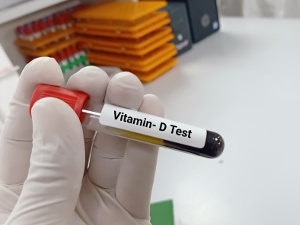 Cancer patients often have overwhelming pain that turns up as their disease progresses. The whole purpose with palliative care is to relieve the pain, and opioids such as morphine are often used for this purpose. However, according to a Swedish study published in the science journal Cancer, more and more terminal cancer patients who are given high-dosed supplements of vitamin Dhave less need for pain treatment and generally feel less tired. Vitamin D deficiencies are common among cancer patients and may contribute to a shorter life expectancy.
Cancer patients often have overwhelming pain that turns up as their disease progresses. The whole purpose with palliative care is to relieve the pain, and opioids such as morphine are often used for this purpose. However, according to a Swedish study published in the science journal Cancer, more and more terminal cancer patients who are given high-dosed supplements of vitamin Dhave less need for pain treatment and generally feel less tired. Vitamin D deficiencies are common among cancer patients and may contribute to a shorter life expectancy.
- that cause many sick days and even deaths
 Vitamin D supplements prevent colds, influenza, and intercurrent complications. This was seen in a large meta-analysis emphasizing that vitamin D is not only important for bone health but also for the immune system, which may require larger quantities. Because many old people or weakened individuals die of pneumonia, supplementing with vitamin D may potentially save millions of lives.
Vitamin D supplements prevent colds, influenza, and intercurrent complications. This was seen in a large meta-analysis emphasizing that vitamin D is not only important for bone health but also for the immune system, which may require larger quantities. Because many old people or weakened individuals die of pneumonia, supplementing with vitamin D may potentially save millions of lives.
- plus large cuts in public healthcare
 Lack of vitamin D is rather common. It increases the risk of infections and a host of serious diseases. German cancer researchers have estimated that if all Germans from 50 years and older took a daily vitamin D supplement it would prevent 30,000 cancer-related deaths annually and gain over 300,000 years of life. In addition to that, it would lead to huge reductions in public healthcare. The health-related and financial benefits of optimizing the population’s vitamin D status fits in nicely with previous research and calculations from Denmark.
Lack of vitamin D is rather common. It increases the risk of infections and a host of serious diseases. German cancer researchers have estimated that if all Germans from 50 years and older took a daily vitamin D supplement it would prevent 30,000 cancer-related deaths annually and gain over 300,000 years of life. In addition to that, it would lead to huge reductions in public healthcare. The health-related and financial benefits of optimizing the population’s vitamin D status fits in nicely with previous research and calculations from Denmark.
 If you have a large waist circumference, you are more likely to have low blood levels of vitamin D, according to a study that was presented at the annual meeting of the European Society of Endocrinology (ESE) in Barcelona in 2018. The researchers therefore suggest that overweight individuals with a large waist circumference have their vitamin D levels measured, as this may help prevent many of the health problems that are linked to low vitamin D levels, including such things as an increased risk of infections, cardiovascular disease, osteoporosis, winter depression, blood sugar irregularities, diabetes, autoimmune diseases, and cancer.
If you have a large waist circumference, you are more likely to have low blood levels of vitamin D, according to a study that was presented at the annual meeting of the European Society of Endocrinology (ESE) in Barcelona in 2018. The researchers therefore suggest that overweight individuals with a large waist circumference have their vitamin D levels measured, as this may help prevent many of the health problems that are linked to low vitamin D levels, including such things as an increased risk of infections, cardiovascular disease, osteoporosis, winter depression, blood sugar irregularities, diabetes, autoimmune diseases, and cancer.











 Blood levels of
Blood levels of  According to a new study, hormone-disrupting substances like bisphenol-A and phthalates can lower levels of
According to a new study, hormone-disrupting substances like bisphenol-A and phthalates can lower levels of  Children and youngsters who are exposed to lots of sunlight and have plenty of
Children and youngsters who are exposed to lots of sunlight and have plenty of 
 Approximately one billion people worldwide lack
Approximately one billion people worldwide lack  Scientists have discussed for quite some time to what extent
Scientists have discussed for quite some time to what extent  It is both healthy and life-extending to get plenty of summer sun, which is our main source of
It is both healthy and life-extending to get plenty of summer sun, which is our main source of 
 Decades of research show that there is a link between lack of vitamin D and an increased risk of breast cancer. Vitamin D deficiencies are especially common at the northern latitudes because the sun sits too low in the sky for humans to be able to synthesize the vitamin during the winter. However, even in the southern hemisphere, many women have too little vitamin D because of spending too much time indoors, using too much suncream, or veiling themselves. Vitamin D has many anti-cancer properties, and postmenopausal women with too little vitamin D in their blood, who are diagnosed with breast cancer, have worse odds, according to a study of Brazilian women. In other words, it is not enough to treat breast cancer with surgery, chemotherapy, and radiation. You also need to optimize your blood levels of vitamin D and other nutrients, which the body needs in order to function optimally.
Decades of research show that there is a link between lack of vitamin D and an increased risk of breast cancer. Vitamin D deficiencies are especially common at the northern latitudes because the sun sits too low in the sky for humans to be able to synthesize the vitamin during the winter. However, even in the southern hemisphere, many women have too little vitamin D because of spending too much time indoors, using too much suncream, or veiling themselves. Vitamin D has many anti-cancer properties, and postmenopausal women with too little vitamin D in their blood, who are diagnosed with breast cancer, have worse odds, according to a study of Brazilian women. In other words, it is not enough to treat breast cancer with surgery, chemotherapy, and radiation. You also need to optimize your blood levels of vitamin D and other nutrients, which the body needs in order to function optimally. A large Israeli population study of over 4.6 million people shows that lack of sunshine and
A large Israeli population study of over 4.6 million people shows that lack of sunshine and 
 People, who eat nutrient-depleted diets, have an increased risk of contracting cancer, according to a French study that is published in PLoS Medicine. The scientists therefore recommend labeling food to help consumers make healthier choices. In the Nordic countries, we already have the “Keyhole label” on certain healthy food items, but even if you follow the official dietary guidelines, it may be difficult to get enough vitamin D and selenium, both of which are nutrients with several anti-cancer mechanisms.
People, who eat nutrient-depleted diets, have an increased risk of contracting cancer, according to a French study that is published in PLoS Medicine. The scientists therefore recommend labeling food to help consumers make healthier choices. In the Nordic countries, we already have the “Keyhole label” on certain healthy food items, but even if you follow the official dietary guidelines, it may be difficult to get enough vitamin D and selenium, both of which are nutrients with several anti-cancer mechanisms. One in nine Danish women gets breast cancer, and the situation is not improving, on the contrary. One of the reasons why breast cancer is so widespread is that so many women lack
One in nine Danish women gets breast cancer, and the situation is not improving, on the contrary. One of the reasons why breast cancer is so widespread is that so many women lack  An only six-month-old baby died of heart failure and the following complications. The tragedy was a result of severe
An only six-month-old baby died of heart failure and the following complications. The tragedy was a result of severe  A substantial number of people suffer from Hashimoto’s disease, a condition that causes hypothyroidism (slow metabolism), extreme fatigue, cold sensitivity, weight gain, and numerous other symptoms because the cells lack energy. Quite a few people suffering from this disease receive treatment, but the results are often unsatisfactory, and most people have not been given the correct diagnosis or do not receive proper help.
A substantial number of people suffer from Hashimoto’s disease, a condition that causes hypothyroidism (slow metabolism), extreme fatigue, cold sensitivity, weight gain, and numerous other symptoms because the cells lack energy. Quite a few people suffering from this disease receive treatment, but the results are often unsatisfactory, and most people have not been given the correct diagnosis or do not receive proper help. Sun awareness campaigns have scared people away from sun exposure because of the risk of skin cancer. Still, it is essential to get enough
Sun awareness campaigns have scared people away from sun exposure because of the risk of skin cancer. Still, it is essential to get enough  Having high blood levels of
Having high blood levels of  Vitamin D-deficient patients are twice as likely to sustain life-threatening complications in the wake of a COVID-19 infection, according to a study from Northwestern University in the United States, where scientists collected data from 10 different countries. It is worth making a note of the fact that vitamin D deficiencies are particularly common among older people of color, nursing home residents, overweight people, and chronically ill individuals, all of which are well-known risk groups. In the future fight against COVID-19 and other epidemics, good hygiene, hand sanitizer, isolation, and delayed vaccines are not enough. We must take the right measures to regulate our immune system with
Vitamin D-deficient patients are twice as likely to sustain life-threatening complications in the wake of a COVID-19 infection, according to a study from Northwestern University in the United States, where scientists collected data from 10 different countries. It is worth making a note of the fact that vitamin D deficiencies are particularly common among older people of color, nursing home residents, overweight people, and chronically ill individuals, all of which are well-known risk groups. In the future fight against COVID-19 and other epidemics, good hygiene, hand sanitizer, isolation, and delayed vaccines are not enough. We must take the right measures to regulate our immune system with  According to an American study, individuals with higher blood levels of
According to an American study, individuals with higher blood levels of  Melanoma can be very dangerous if it is not treated in time, but a study from the University of Leeds in England shows that
Melanoma can be very dangerous if it is not treated in time, but a study from the University of Leeds in England shows that  It is hardly a coincidence that so many of us contract virus infections in the course of the winter. It is because we lack
It is hardly a coincidence that so many of us contract virus infections in the course of the winter. It is because we lack  Supplementing with high doses of
Supplementing with high doses of  Cancer patients, who take high-dosed
Cancer patients, who take high-dosed  Cancer patients often have overwhelming pain that turns up as their disease progresses. The whole purpose with palliative care is to relieve the pain, and opioids such as morphine are often used for this purpose. However, according to a Swedish study published in the science journal Cancer, more and more terminal cancer patients who are given high-dosed supplements of
Cancer patients often have overwhelming pain that turns up as their disease progresses. The whole purpose with palliative care is to relieve the pain, and opioids such as morphine are often used for this purpose. However, according to a Swedish study published in the science journal Cancer, more and more terminal cancer patients who are given high-dosed supplements of 
 Lack of
Lack of  "After about one week of taking the Q10 supplement I could feel a huge difference," says 23-year old Alan Piccini, who has been suffering from extreme fatigue and muscle aches ever since he was a child.
"After about one week of taking the Q10 supplement I could feel a huge difference," says 23-year old Alan Piccini, who has been suffering from extreme fatigue and muscle aches ever since he was a child. “Taking capsules with co-enzyme Q10 has freed me of the severe side effects of my cholesterol lowering medicine,” Mrs Franken explains.
“Taking capsules with co-enzyme Q10 has freed me of the severe side effects of my cholesterol lowering medicine,” Mrs Franken explains.